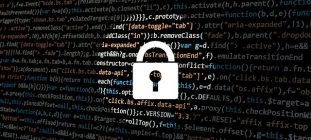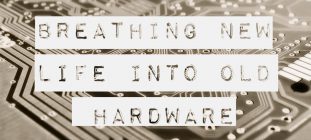
Over the years, Artificial Intelligence (AI) has gone from being just an idea to becoming something real that drives growth in different industries. AI tools specifically have brought this change by providing unimaginable capabilities which help improve efficiency, accuracy and even creativity too. These days people use them everywhere – from healthcare to finance down to education more so the entertainment industry; it’s like everything we do is connected with artificial intelligent systems nowadays! So in essence what I’m saying is that without such tools our lives will never be the same again because they are literally changing how humans work, live or relate with objects around themselves. The main aim of writing any piece about AI should be exploring various types as well as where each can be applied within society setup.
Evolution of AI Tools
AI tools have come a long way since artificial intelligence was first introduced. Initially, AI systems followed predefined instructions – they were rule-based. But today, machine learning and deep learning have brought about more advanced AI tools that learn from data, adjust to new information, and make decisions on their own.
Modern AI tools employ large amounts of data and strong algorithms to execute tasks which were previously considered only doable by human beings possessing intelligence. These tools can identify regularities, forecast results, or even create something originally artistic thus opening up new possibilities in different fields altogether.
Key Applications of AI Tools
Healthcare
AI tools are changing the way healthcare works. These tools increase how accurate diagnoses can be made, personalize patient treatment plans, and improve patient care. For example, machine learning algorithms can look at medical images and find diseases like cancer early. Similarly, predictive analytics help foresee what is likely to happen to patients and manage chronic illnesses. Additionally, AI virtual assistants offer mental health support while observing the well-being of patients from a distance.
Finance
In finance, AI tools cut down operational processes, prevent fraud, and elevate customer experience. Here, algorithms guided by artificial intelligence study market trends for investment suggestions based on consumer behavior. Furthermore, NLP chatbots powered by AI are used to enhance customer service by giving immediate and accurate replies to inquiries.
Education
There is a fundamental reshaping of education taking place because of AI tools. They do this by offering individualized learning experiences and automating administrative tasks too. Intelligent tutoring systems adjust to the unique needs of each student with customized lessons and feedback while also offering such features as artificial intelligence driven analytics for identifying where teaching should be directed. On top of everything else, these same AI-based programs have been utilized in content creation itself – thus making it more interesting and accessible for learners.
Entertainment
The entertainment industry has found an exciting way to use artificial intelligence: creating immersive experiences that engage users interactively. By analyzing what people like, algorithms can suggest movies or music Content is being produced with the help of AI too – so now even scripts are written automatically along with other things like generating artworks through creativity bounds pushed by this very tool. However, this does not stop there; virtual reality (VR) as well as augmented reality (AR) applications have become more realistic thanks in part due also being applied alongside them.
Business Operations
AI tools are maximizing business efficiency through automation of repetitive tasks while also increasing productivity by improving decision making. Robotic Process Automation( RPA) employs artificial intelligence to carry out mundane activities like data entry and invoice processing thus allowing workers to concentrate on more strategic tasks. Insights such as customer behavior trends within the market can be unearthed through analytics powered by AI which in turn facilitates data-driven judgments in a company’s bid towards operational excellence.
Impact of AI Tools on Society
There has been a significant societal transformation resulting from the widespread use of these systems hence both good and bad influences. On the brighter side they have been attributed with fostering economic growth, enhancing living standards and even enabling scientific discoveries. Additionally they contribute towards simplifying our lives through solving complex issues ranging from global warming down to outbreaks of diseases; not forgetting how much time we save while doing daily chores because everything can now be controlled automatically.
However, the ascent of AI instruments additionally introduces significant moral and social inquiries. Problems such as data privacy, algorithmic partiality, and job loss should be tackled in order for AI benefits to be distributed fairly. It is necessary to have transparency and accountability in AI systems so that trust can be built and potential harms minimized.
Future of AI Tools
The future looks bright for AI instruments because they are projected to become even more powerful through continual breakthroughs that will see them deeply incorporated into every sphere of life. Quantum computing and neuromorphic engineering among other emerging technologies are expected to boost the capacities of these tools making them able to operate in a more complex manner. This empowerment towards innovation is due to the fact that people will be able to understand and use these instruments effectively since they are becoming smarter and user-friendly as time goes by.
Summary
In summary, AI tools are the core of the AI revolution. They change industries and give people new abilities. Their effects are extensive, providing chances and difficulties that should be handled with care. We must ensure that ethical principles and the common good guide their development and use as we take advantage of these instruments.


















